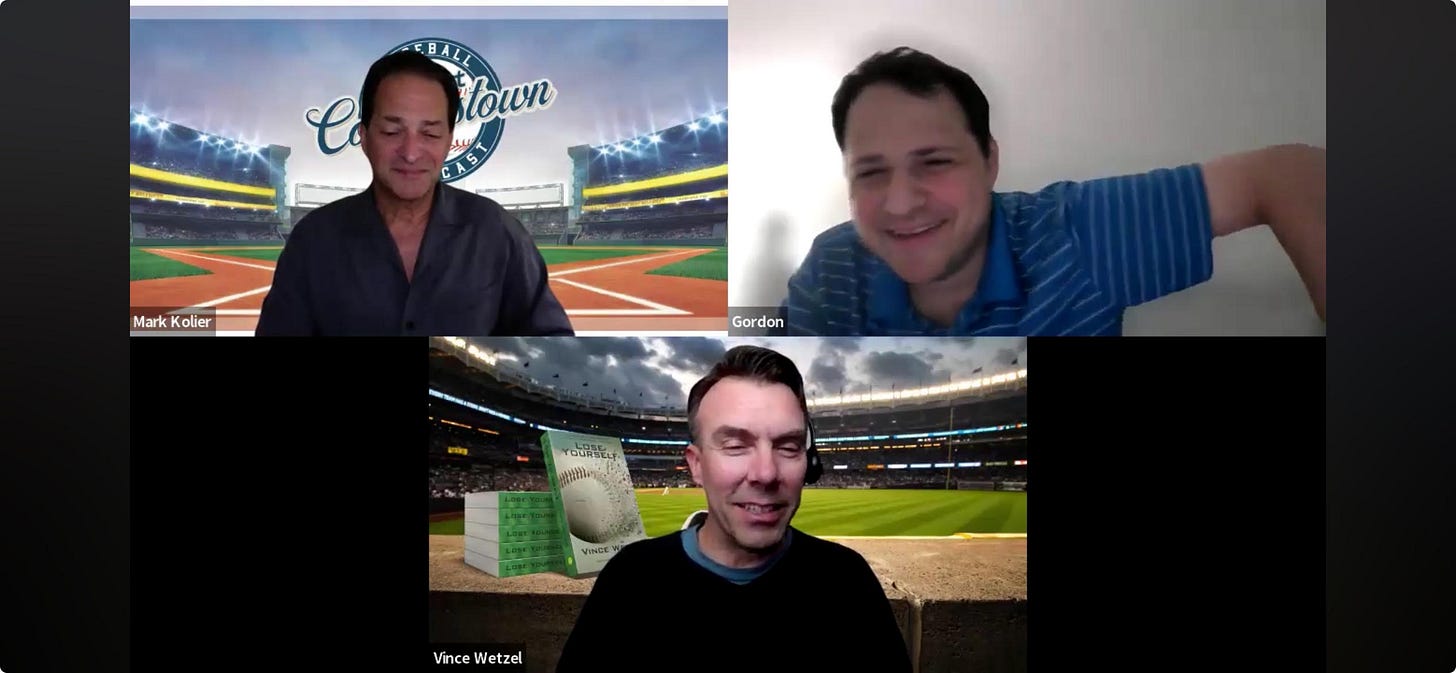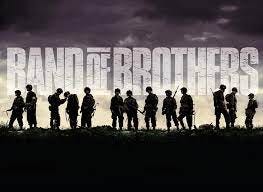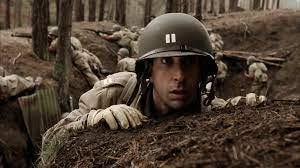The Art of the Podcast Interview
Unveiling the Secrets to Captivating Conversations and Engaging Audiences!
Since the release of Lose Yourself, I’ve had the great pleasure of being a guest on several podcasts. These appearances have ranged from talking about the book, the writing process, the Oakland A’s, even my internship with the Los Angeles Dodgers 30 years ago.
What I’ve learned from these conversations is that folks love a good story. And baseball lovers enjoy a good story that celebrates the game. There’s shared interest and most of all, podcast hosts want good content. But to be honest, I was intimidated at first to talk on baseball podcasts. At the moment, my attention to the baseball season isn’t as detailed as it was years ago. I watch games, sure, but I’m not paying attention to stats, standings, even teams beyond my primary spheres of attention.
But as I entered into my promotional tour, I realized I knew a lot more than I thought. I also unleashed a vault of nostalgia around baseball and the countless hours I’ve spent watching the game on TV and in the stands. Those memories were the fuel that fed the narrative of Lose Yourself. Participating in these interviews have provided much needed energy as I continue to promote the book.
Over the course of this press tour (and it continues), I’ve implemented a little of what I’ve learned from listening to great podcasts to great effect. Therefore, here are my tips for a successful interview:
Be Prepared: If possible, get a list of questions and flow from the interviewer. List the points you want to discuss and understand when the best moment is to share them.
Research your interviewer: Listen to previous podcasts. Understand the format and the style. Be ready to riff.
Prepare your screen space: If you have a virtual background, set it up with your book prominently displayed. If the platform doesn’t allow for a virtual background, find other ways to promote yourself.
Arrive early to test the tech: The adage is if you show up on time, you’re late. This is particularly true for interviews. I always get on five minutes early to make sure the camera, the microphone, and the background all work together.
All of these tips will help you be the most comfortable before the podcast begins. Remember to relax. Now for the on-air tips:
Focus on the interviewer. You know from the research what they like to have in their podcast and their listeners’ interests. So, don’t think of the audience. Engage with your host.
Gratitude: The hosts are generous to give you airtime. Be appreciative and grateful for the opportunity. This mindset also brings a smile, and interviews are better when you’re happy to be there.
Rapport: Establish rapport with the host. Since you’ve listened to their other podcasts, you can find ways to relate. Refer to the host by his/her first name.
Have stories: Interviews are better with personal stories and anecdotes.
Plug away: Share where folks can get the book at least three times.
Confirm their social media for mentions. We are in a symbiotic relationship. They want you to introduce your fans to their podcast too.
There are other sites that list some great tips for participating in podcasts.
Thank you to the podcasters who’ve had me on their shows. I’ve listed them in my Media Section. I’m available to join your podcast too!
May 20: 40/40 Vision Podcast
See other interviews I’ve done on my Press Tour, including this text interview, at Armedwithabook.com.
Rewatch: Band of Brothers
This year marks the 80-year anniversary of the D-Day Invasion, one of the single-most defining moments of modern history. Over the next few weeks, I’ll be conducting my own rewatch of this Emmy Award-winning series, share my impressions, insights I’ve learned through listening to the Band of Brothers rewatch Podcast with Roger Bennett (produced in 2021), and encourage your participation now that it’s available on Netflix.
Episode One: Currahee. It is unfair to say this, but the subtitle could be “The One where Ross is an a-hole.” We are introduced to the men of Easy Company during their training at Camp Toccoa under First Lieutenant Herbert Sobel (David Schwimmer, hence the Friends reference). To say Sobel was a tyrant, even by basic training standards, is an understatement. His strict disciplinary style and resentment for Lieutenant Dick Winters (Damian Lewis) causes a mutiny among Easy’s non-commissioned officers. Sobel is ultimately reassigned, and Easy Company prepares for D-Day.
Ultimately, Schwimmer’s casting is a distraction. At the time of airing, Schwimmer was at the height of Friends popularity. Rewatching, I keep waiting for Sobel to demand Easy Company “Pivot, Pivot, Pivoooottt.”
On this rewatch, I began to think about the positive impacts Sobel may have had on Easy Company. He may not have been effective as a field commander, but many soldiers credit his meticulous attention to detail and the constant drilling for keeping them alive throughout the war. I found more about Sobel here.
There are so many future stars in this show, it’s amazing. Of course there’s Lewis, who would later be in Homeland and Billions, and Ron Livingston (Loudermilk, Office Space, Swingers, Million Little Things), but I spotted Michael Fassbender (X-Men), and Simon Pegg (Mission Impossible), and more. I’ll point out more as the series continues.
Podcast Nugget: Bennett interviewed Ron Livingston for this podcast episode. Livingston, who played Intelligence Officer Lieutenant Lewis Nixon, shared how he went into the first audition unprepared, but that it helped him. He also detailed the pre-shoot boot camp in a video diary for HBO. Since he was an intelligence officer, he was often not in the line of fire, so this diary was a way the producers used to set him apart from the other members of Easy Company.
My plan for the future is to hit two a week. That will make next week’s recap of “Day of Days” on June 7, the day after the 80th anniversary of Operation Overlord and the final recap on July 5. I hope you enjoy. Feel free to watch on Netflix and provide your own reflections.





